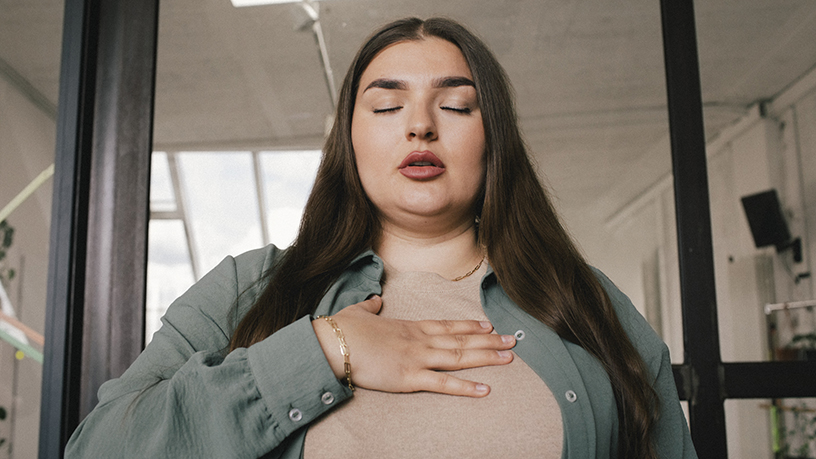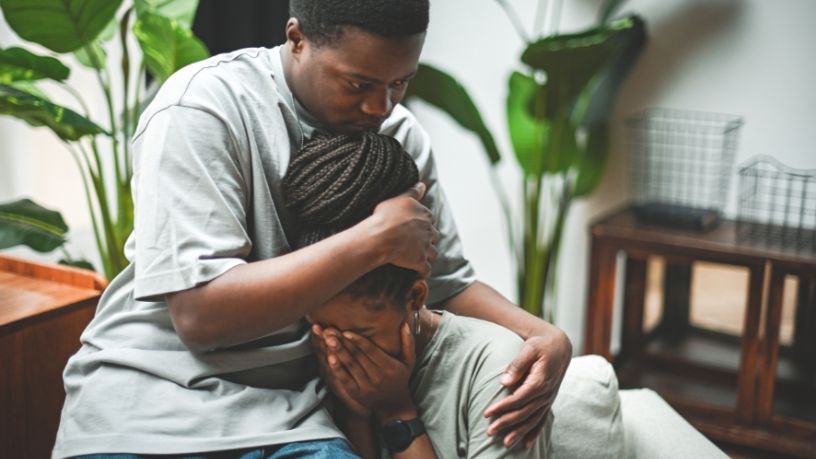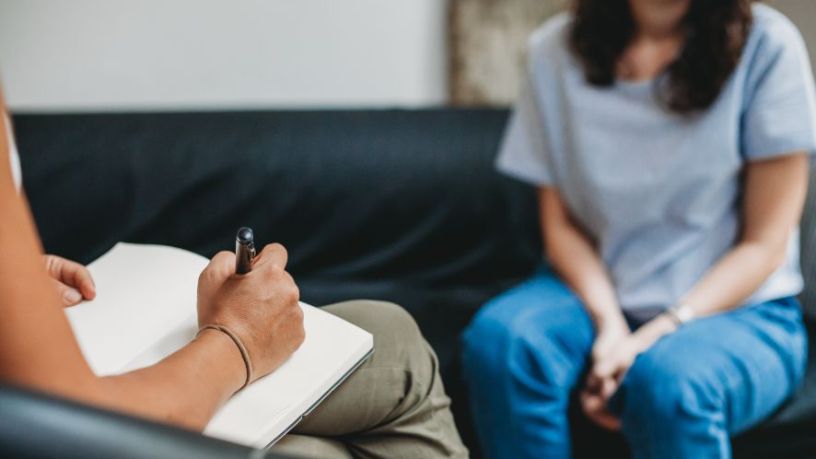On this page
Key takeaways
- Recognising the signs of anxiety is the first step.
- Simply acknowledging someone is feeling anxious can help.
- Patience and love are the cornerstone of helping someone with an anxiety disorder.
It's always hard to see someone you care about struggling, and it can be especially difficult to know how to help someone with anxiety.
You might wonder why they are so negatively affected by something you deal with every day. But with more than one in 6 Aussies dealing with anxiety disorders, it’s something you’re likely to experience at some point.
Love and acceptance are critical elements in helping someone with anxiety feel more at ease. Here’s more on how you can help.
How friendships help anxiety
Friendships play a crucial role in managing anxiety. A supportive friend can provide emotional and practical support, help mitigate feelings of isolation, and create a buffer against anxious thoughts.
Friendships provide a safe space to share concerns and are a sounding board for different perspectives. It’s important to be able to do all this without making your friend or loved one feel uncomfortable or embarrassed.
1. Learn some of the signs of anxiety
Noticing and understanding some of the physical and psychological signs of anxiety can be the first step in helping someone who has an anxiety disorder. This allows you to understand how consuming their condition might be. Physical symptoms might include:
- Sweating
- Nausea
- Restlessness
- Shortness of breath
- Diarrhea
- Being easily fatigued
Psychological signs might include:
- Avoiding certain situations
- Seeking constant reassurance
- Second-guessing
- Irritability
- Compulsive actions (such as washing hands over and over)
2. Acknowledge they’re having a tough time
Validating someone’s emotions can be very powerful for them. Instead of telling your friend to get a grip or that something they feel anxious about isn’t a big deal, instead acknowledge how they are feeling.
Saying something as simple as “I can see this is a really hard time for you,” can help someone feel seen. Telling a friend you’re there for them without offering solutions can also be comforting and help them feel less alone.
3. Ask what they need
Anxiety disorders don’t come with an on-off switch.
It may feel like it occupies every space in a person’s mind, leaving little room for anything other than worry.
Asking what you can do to help allows someone to ask for support in a way that works for them.
However, not everyone knows or can tell you exactly what they need.
Saying something like, ‘We can figure this out together,’ shows you’re there with them, but doesn’t put pressure on them to come up with a solution.
4. Be patient
If you know that a friend declines invitations or regularly cancels activities because of their anxiety, get on the front foot and suggest they choose an activity they feel comfortable with.
Questions like, “Do you feel like doing something to take your mind off it?” can change the focus of negative feelings and help them think about something else.
It’s important to remember, people with anxiety don’t cancel catch-ups because they don’t want to see you or they can’t be bothered. Social situations may cause them anxiety, so it’s important not to take things personally.
5. Remind them there is support available
While friends can be a huge source of support, it’s also important to highlight that there is professional help available.
Reminding someone that a GP or other health professional has experience in treating anxiety may encourage them to seek help. Offering to go with a loved one to talk to a professional may help some people feel more confident in asking for assistance.
Resources
If yours or someone else’s life is in danger, dial 000 immediately.
Lifeline Australia offers 24/7 crisis support online and on the phone at 13 11 14.
Beyond Blue offers 24/7 mental health information and support online and on the phone at 1300 224 636.
13YARN offers a national crisis support line for First Nations People on 13 92 76. The support line is available 24/7.
1800Respect is a 24/7 support service for people experiencing domestic violence. You can find support, counselling and information online or on the phone at 1800 737 732.
PANDA (Perinatal Anxiety & Depression Australia) supports the mental health of parents and families online and on the phone at 1300 726 306.
MensLine is a counselling service for men. You can get 24/7 support online and on the phone at 1300 78 99 78.
QLife offers LGBTQIA+ peer support online and over the phone on 1800 184 527.

At Bupa, trust is everything
Our health and wellbeing information is regularly reviewed and maintained by a team of healthcare experts, to ensure its relevancy and accuracy. Everyone's health journey is unique and health outcomes vary from person to person.
This content is not a replacement for personalised and specific medical, healthcare, or other professional advice. If you have concerns about your health, see your doctor or other health professional.
You might also like
Hack your anxiety: 5 science-backed ways to help find calm now
Getting help for anxiety is important. Here are some ways to help manage your anxiety at home.
What's the difference between anxiety and depression?
Anxiety and depression are common mental health conditions in Australia. Learn about the different signs and symptoms and where to get help.
A step-by-step guide to managing panic attacks
Panic attacks can happen at any time. Discover practical calming techniques and breathing exercises to manage a panic attack and ease your symptoms.
Taking care of your mental health: Who do you call?
Looking for mental health support? Read this guide to find out what services are available.





